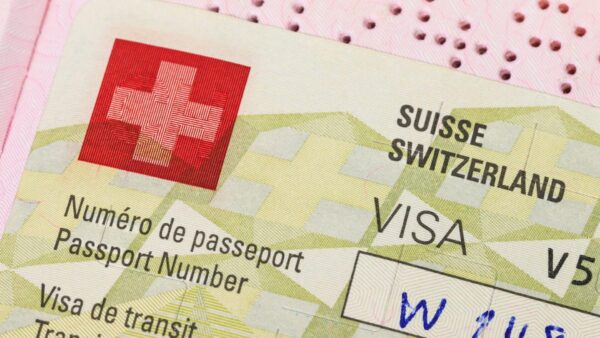It’s hard to ignore the fact our world is changing. Regardless of the cause, we know natural disasters are increasing in number and frequency. Already this year, wildfires posing a significant threat to life have broken out in areas as diverse as California, the Greek islands and the Amazon rainforest.
For those who love to travel, ignoring the potential impact of these wildfires is no longer an option. While the likelihood of getting caught up in one is still slight, it’s a lot bigger now than it was a decade ago. To safeguard yourself and your money, you should know what legal protections are in place for tourists affected by wildfires.
Some Possible Scenarios to Consider
There are five ways in which a wildfire could affect your trip, whether you’re travelling to another country or vacationing in a natural disaster hotspot like California. It could destroy aspects of the hotel you’re currently staying in or planning to stay at. You could be evacuated and removed from a wildfire danger zone during a trip. Your flights or other travel plans may be postponed. You could hear about a wildfire and decide the trip is too dangerous.
Finally, you may find yourself unable to take a planned trip because your home or business property has been damaged by fire elsewhere. This article discusses some of the legal protections you have in these scenarios. While most are covered by credit card and travel insurance protections, there are instances when compensation may not be straightforward.
What Do Travel Insurance Policies Cover?
We strongly recommend purchasing travel insurance if you plan to visit a region that has experienced sizeable natural disasters within the last ten years. This doesn’t have to be wildfires because insurance policies cover multiple types of incident. If you have a robust policy, you’ll be covered for wildfires, flooding, earthquakes and more.
It’s true that travel insurance covers many of the same areas as credit card protections. However, most credit cards don’t reimburse for expenses made after knowledge of a wildfire or other disaster has been made public. In short, if you knew a little about the situation but embarked on your trip anyway – because you weren’t sure of the severity of the situation – the coverage offered may be meagre. This is why travel insurance is important.
Delays to a Planned Trip
Most travel insurance policies cover travellers for expenses incurred and lost due to unavoidable delays. For instance, if a wildfire breaks out and you miss the first five days of your trip, you would usually be reimbursed for money spent on accommodation and transportation arrangements that couldn’t be used.
In some cases (though not all), policy holders may be entitled to reimbursement if they’ve spent money on day trips or tours they couldn’t use.
When a Trip Is Outright Cancelled
Travel insurance protections are robust when it comes to cancelled trips. Policyholders are entitled to reimbursement if any of the following apply: (a) the accommodation or resort has been extensively damaged by wildfire, (b) the carrier delays arrival at the destination by at least one full day, (c) the tour operator cancels a prepaid scheduled tour (d) the local government evacuates the accommodation or resort, (e) at least 50% of a planned travel trip is lost due to wildfire.
Most travel insurers offer ‘cancel for any reason’ coverage as an optional extra. This is particularly useful if you also live in a wildfire zone. Don’t forget, the fire doesn’t have to be occurring at your destination to affect your trip. Consider the consequences of a wildfire breaking out in your neighbourhood shortly before you’re due to travel. With this type of insurance, policy holders are reimbursed for ANY reason they choose to cancel.
What Do Credit Card Travel Protections Cover?
It’s common for flights to be automatically covered by the credit card protections of the purchasing card. If you book a return flight with a Sapphire Reserve credit card, the travel arrangements are covered by a number of key policies. For instance, trip cancellation protections mean you get money back if a wildfire prevents you from embarking altogether.
Interestingly, the same terms apply to trips that are cancelled while the policy holder is attempting to start their departure (travelling to the airport). It means, theoretically, the majority of credit protections would pay out if a wildfire started at home and prevented you from embarking on a trip elsewhere.
When a Trip Is Outright Cancelled
However, there’s a catch. The wording of most credit card policies takes care to state the acceptable reasons for a cancellation. One of these reasons is ‘inclement weather.’ Unfortunately, it’s up to the discretion of the insurer to decide what constitutes inclement weather and if a wildfire counts. Again, this is why it’s wise to double up on your travel protections with credit card cover and travel insurance.
Legally, if a credit card insurer does not deem a wildfire to be evidence of extreme weather capable of cancelling a trip, they may not payout. The exception is in the evidence of clear and present danger. If local government is telling holidaymakers to cancel their trips and stay home, it’s hard for an insurer to contest reimbursement.
Delays to a Planned Trip
Credit card protections, particularly Sapphire Reserve and other credit cards like it, tend to offer quite robust delay policies. The aforementioned company reimburses travelers for a maximum of $500 (per application) if a planned trip is delayed by more than six hours. If a delay leads to an unexpected overnight stay, reimbursement usually increases.
If a credit card company were to consider the wildfire an example of inclement weather, or showed willingness to otherwise consider wildfire as a covered hazard, you’d be covered for alternative lodging and incurred expenses due to the delay. That being said, you wouldn't be covered for any covered hazard delay that was made public or known to you prior to the departure for the covered trip.
















